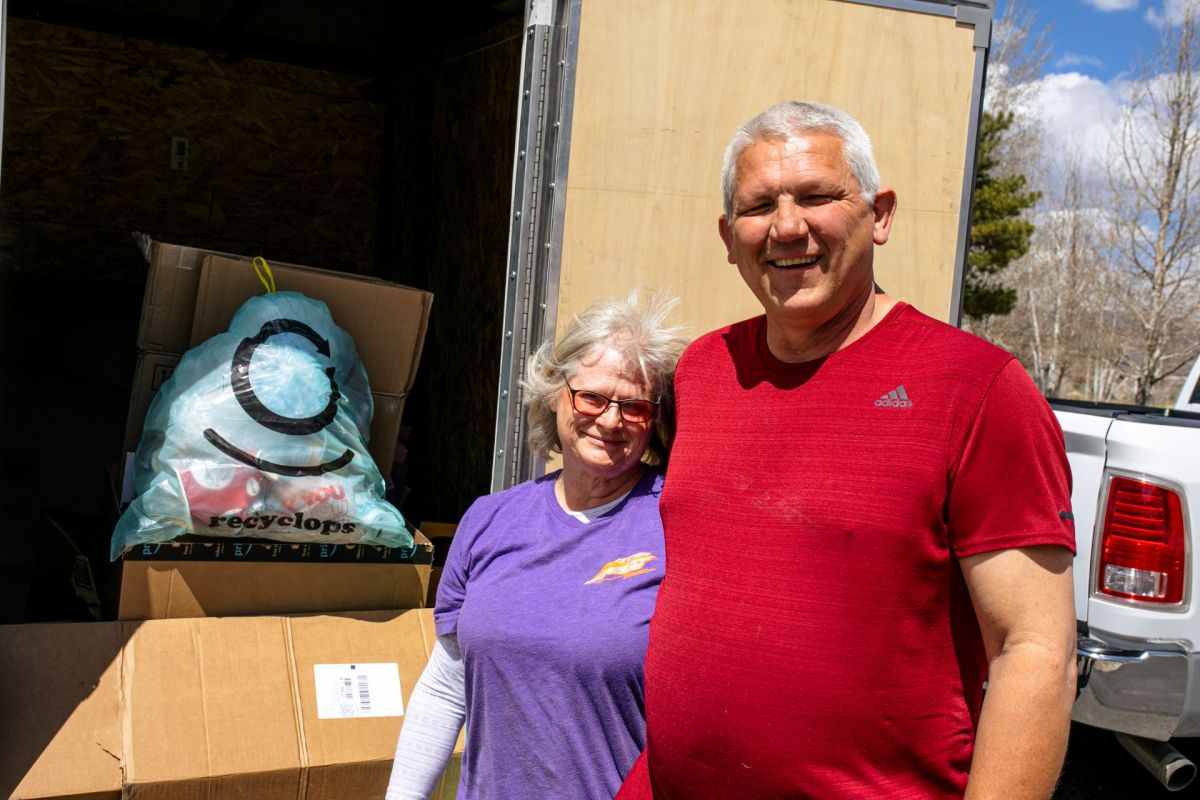It's hard to believe that in this day and age, some homes don't have convenient recycling pickup, but an estimated 50 million households — roughly 38% of America — don't have an easy solution.
When Ryan Smith realized his off-campus college apartment didn't have recycling, he told The Cool Down, "I was shocked."
He quickly learned that most apartments in the U.S. didn't have recycling either — and some of the buildings that were required to provide it were dropping the ball.
Take Chicago, where some residents have resorted to creating an entire website called "My Building Doesn't Recycle!" dedicated to reporting buildings that don't offer recycling.
So Smith decided to do something about it. In 2014, he founded Recyclops to make recycling accessible to everyone, regardless of where they live.
He started with his college apartment building in Provo, Utah. Then he decided to set up a recycling program for an entire town nearby, Mapleton, where he took over for a couple who had been driving around in their Suburban collecting trash to try to do good.
Now, Recyclops is a certified B-Corp and has expanded nationwide, offering easy solutions for single-family homes and businesses in more than 30 states. The company's website has a page showing all active residential locations to see if their operations are available in a given area, along with the recycling facility they work with there.
"We believe that there are about 16 million apartment homes and 34 million single-family homes with no recycling pickup service," Smith said. "It's mind-blowing to me."
Recyclops arrived at those estimates totaling 50 million homes without service (about 38% of all U.S. homes) by conducting surveys of communities and comparing results to other research, shared for review with The Cool Down.

The company's curbside recycling program is available for an average price of $29 a month. But you won't find a big garbage truck coming to pick it up — they use the gig economy to hire members of the local community to do their pickups.
"The average garbage truck gets two to three miles per gallon — that's a lot of emissions," says Smith. By using local drivers, Recyclops says it can keep diesel trucks from polluting local communities and doing damage to local roads — according to its statistics, garbage trucks do as much as 528 times the road damage per household as their local drivers.
Their programs generally take whatever can be recycled in the nearest metro area, and they always accept glass. Based on their calculations, they have emissions that are one-fifth or less of traditional garbage collection methods, per household.
While organizations like Greenpeace have called plastic recycling a "failed concept" and cited figures as low as 5% of all eligible plastic being recycled, part of that is the barrier to recycling, which Recyclops is aiming to fix. And materials like aluminum, glass, and paper are much more successful at being recycled properly. On top of that, Recyclops says it improves recycling rates even further with its practices, pointing to internal data around lower contamination rates (5% to 8%) than municipal programs (18% to 40%).
They also partner with businesses to help them dispose of hard-to-recycle items. Imperfect Foods partnered with them to help recycle the insulated liners that come with cold food, and Dyper works with them to pick up diapers to be composted or turned into biochar.
With some local communities dropping curbside recycling pickup, Recyclops is aiming to make sure everyone has the power to keep recyclable waste from being wasted — diverting nearly 1 million pounds of waste from landfills each month.
Join our free newsletter for easy tips to save more, waste less, and help yourself while helping the planet.









